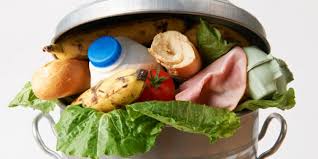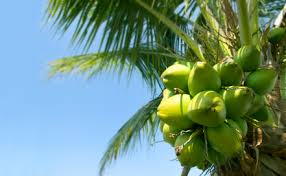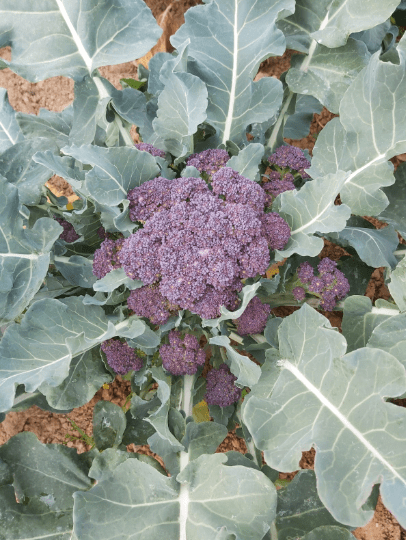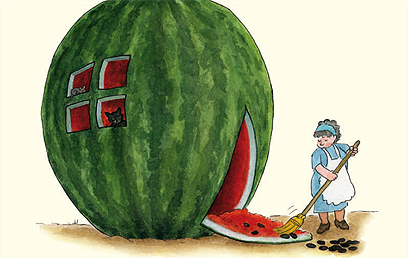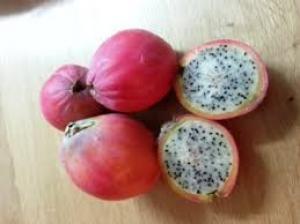Buy organic, buy reasonably – save the planet
It seems that saving the planet is a very difficult, nearly impossible task. It is one that requires cooperation among the superpowerful countries in writing agreements, investing resources, employing drastic means of enforcement and changing the way of life to which we are all accustomed. And it does not work. It is impossible to cause, for example, a collective transition of all the inhabitants of earth to use compost services and reusable diapers. Whether or not this is feasible (and there are people in Western and "advanced" countries who do this), I also think that there is quite a bit that the individual citizen can do. For example, he/she can buy mainly organic products and not be tempted to overbuy what they do not need.
The routine is familiar: we arrive at the supermarket after a long day's work, search for a parking spot, hunt down a cart, go in armed with a shopping list or without one and begin collecting. However, the supermarket is a place designed by skilled professionals with one goal. That goal is not to minimize the amount of merchandise that goes bad and gets thrown away. The goal is not to increase the quantity of healthy food eaten or the amount of organic fruit and vegetables purchased. The goal is to cause the buyer to increase the volume of purchases, or in other words, to "explode" the cart with groceries. This explosion has a global price …
About 30% of the food we buy goes to waste. Just like that. We went to the supermarket, we bought it, we carried it home, put it in the fridge or on the shelf, cooked it or left it as it was, and from there – hop, into the trash. And so on again, and again, and again. The price of this waste is not only the money that we paid for the food that was thrown out (money that some of us earn from sitting in the office and sitting in the car through traffic jams…). There are a variety of prices that we all pay.
First, we pay for agriculture that grows very little healthy fruits or vegetables. The whole amount of food that is thrown away must first be grown. To grow this amount, conventional agriculture believes that herbicides and pesticides are needed, and without them, the entire humanity cannot be fed simply because the crops will be damaged and there will not be enough for everyone. The result is that chemicals that pollute the soil, air and water and poison us as well are used to grow food – a third of which is thrown into the trash.
Second, we pay for the warming of the planet – all of the resources invested in growing food, and growing food for livestock, contributes significantly to global warming. These are very impressive numbers. Consider the following:
"The excess food produces 3.3 giga-tons of greenhouse gases… The excess food in Europe alone produces more greenhouse gases than all the public and private vehicles of a country like Spain. The global excess food of 3.3 giga-ton is higher than all the gas emissions of vehicles in the United States. Huge numbers. Raising livestock for animal protein, including fish, cattle, poultry and hunting animals, is the largest greenhouse gas producer. The value of food thrown to the garbage is worth $ 2.6 trillion USD, twice the annual food expense in the US, and is enough to provide the full nutrition needs of India, the largest country in the world with 1.3 billion citizens” (This is my own translation of the quote…)

What is the result? A pantry full of goods and a refrigerator filled to bursting – such that many times we just do not remember what is in them. This mostly occurs on Passover when the bigger portion of what we have in our pantries and fridges is thrown into the trash; Inflated shopping bill; Payment of taxes for landfill; Pollution from which we all suffer, and of course, the need for a diet to repair the damage of excess food placed in front of our eyes which tempted us to eat too much.
Organic buying, as you regularly do (and we really appreciate you for it!), is a solution to many of these problems. Although the formal price listed per kilo of produce seems more expensive in an organic fruit and vegetable store, when ordering on our website and from a list, there are many benefits:
- you are not tempted to purchase unnecessary food;
- you save fuel and travel costs (and getting annoyed in traffic jams);
- you save time which you can devote to a cup of coffee or a conversation with the kids before their activity;
- you prevent pollution, of your public environment and of your private body and that of your family;
- you decrease waste disposal, leaving more land for the landscape and less landfills;
- you support the local farmer who in turn contributes to your community and businesses around you.
In other words, as the advertisement says, it only looks expensive…And most important of all, it is healthy and good for you.
To health!
Yours,
Maggie and the garden team
We can expect in our Organic Veggie Baskets (draft only):
Onions
Kholrabi
Fennel
Tomatoes
Cuccumbers
Cauliflower
Lettuce
Pakchoi
Leeks
Potatoes
Broccoli
In the large veggie baskets also:
Swiss Chard
Cabbage
Green Fava Beans
Celery root
In the Fruit Baskets:
Oranges
Clementines
Bananas
In the large Fruit Baskets:
Papaya
more Bananas

